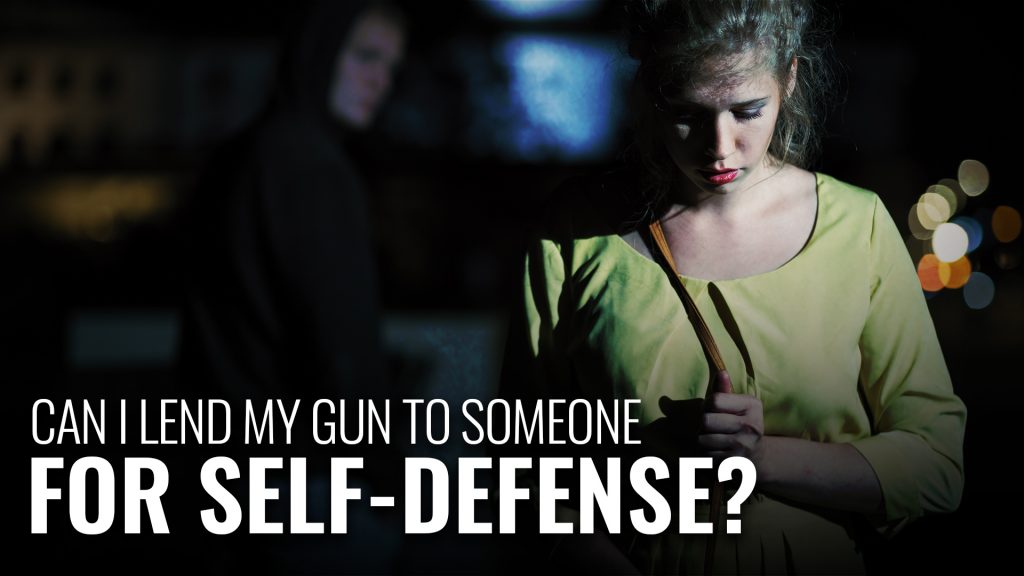
One common question or concern that U.S. LawShield members often ask is, “Can I lend a gun to a third party for self-defense?”
What the law says
The short answer is no. There is no law against you lending a gun to a person for self-defense, with some caveats. One common scenario is where one spouse owns guns, and the other does not. If someone breaks in your house at night, it is perfectly legal for you to lend one of your guns to your spouse. The same answer applies in that scenario if it is your child, or any houseguest.
There are some situations where loaning a firearm can get tricky. If you come upon an altercation between two individuals, you need to be extremely careful before lending a firearm to either. This is even more imperative if the individuals are strangers. If you have misjudged the situation, you may expose yourself not only to civil liability, but you may end up being criminally liable for the acts of the other person. Further, giving a firearm to a child who is with you during a life and death situation is perfectly legal. But allowing your child to carry your firearm off your premises for protection may expose you to criminal charges. It could also open you up for civil responsibility for your child’s actions.
Concerns
Another possible scenario that can cause complications is when the third party is a convicted felon. A convicted felon may claim the right of necessity if they are required to use a gun to save their life or the life of another. But you should be extremely cautious about providing a gun to a convicted felon unless it is a life or death situation, because you may be exposing yourself to civil or criminal liability. An example of necessity would be if you have been attacked by an intruder in your home and seriously wounded. You give your spouse, a convicted felon, your handgun that he/she uses to repel the intruder. It is almost certain that both of you in that situation would be considered to have behaved properly, and no charges filed. However, lending your firearm to a convicted felon in a less clear-cut situation would be extremely risky.
So, to summarize, if you or a third party are facing a situation where you have a reasonable belief you are facing imminent death or serious bodily harm, it is legal to lend your gun to that person for self-defense. Just be very careful, particularly if the third party is a stranger, a child, or a convicted felon.
If you have any questions about lending your handgun to a third party, contact U.S. LawShield and ask to speak with an Independent Program Attorney.
The post Can I Lend My Gun to Someone for Self-Defense? | North Carolina appeared first on U.S. & Texas LawShield.
